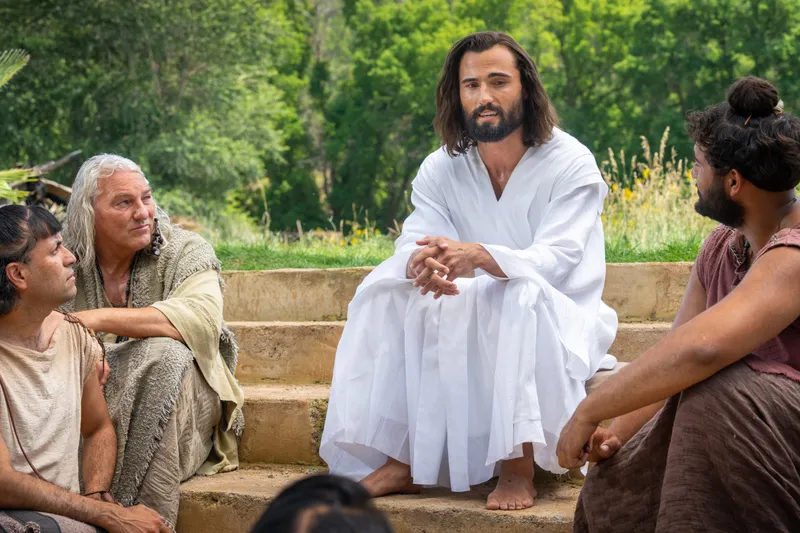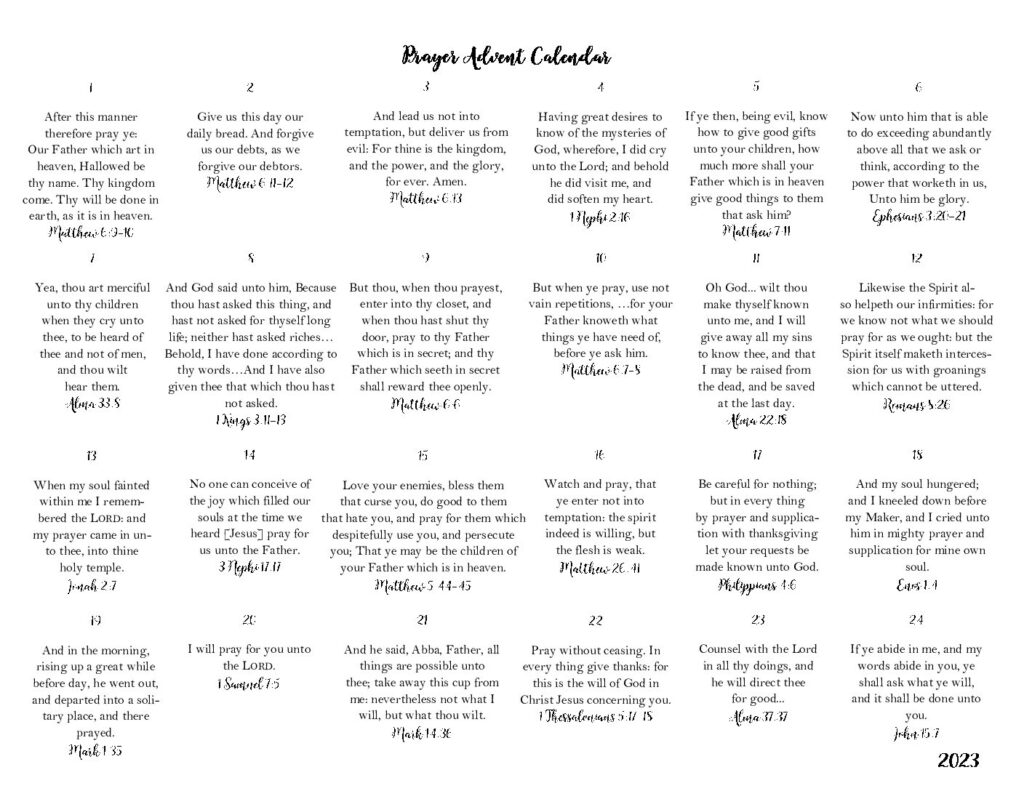Category: Book of Mormon
For fun
A Close Embrace

[This post is something I have shared before, but I discovered more on the topic that I want to share in the final quote at the end of the post. My personal testimony of the Book of Mormon doesn’t hang on academic evidence. Still, I smile to see that Joseph Smith’s translation of these concepts in the Book of Mormon align with Hebrew, Arabic, and Aramaic meanings for atonement.]
A few years ago, we were taught by a visiting leader in a stake conference that every major writer in the Book of Mormon used the imagery of a hug to teach the Atonement of Christ, with words such as clasped or encircled. He challenged us to search for these passages. As I have studied, I have found other words, including clothed to convey the effects of the Savior’s Atonement. Here are some examples:
- Nephi, in a time of grief, pleads with the Lord to “encircle [him] in the robe of righteousness.” (2 Nephi 4:33)
- Lehi tells his family just before his death that he is “encircled about eternally in the arms of [God’s] love.” (2 Nephi 1:15)
- Jacob teaches that the “righteous…are clothed with purity, even with the robe of righteousness.” (2 Nephi 9:14)
- Alma quotes Ammon, about those who repent, “They are encircled about with the matchless bounty of his love.” Ammon also says that the repentant are “snatched from their awful, sinful, and polluted state.” (Alma 26:15, 17)
- Alma, quoting Amulek, “[God’s mercy] Encircles them in the arms of safety.” (Alma 34:16)
- Mormon writes that if the people had repented, they would have been “clasped in the arms of Jesus.” (Mormon 5:11)
I don’t think it trivializes the Atonement of Christ to liken it to an embrace, being snatched from ruin, clothed with righteousness, or being held during a difficult time. The more I think about it, the more I want to share it.
Rich meaning is found in study of the word atonement in the Semitic languages of Old Testament times. In Hebrew the basic word for atonement is kaphar, a verb that means “to cover over” or “to forgive.” Closely related is the Aramaic and Arabic word kafat meaning “a close embrace.”
Russell M Nelson, Daily Joy: A Devotional for Each Day of the Year, p. 178
For you.
Lessons from a mission
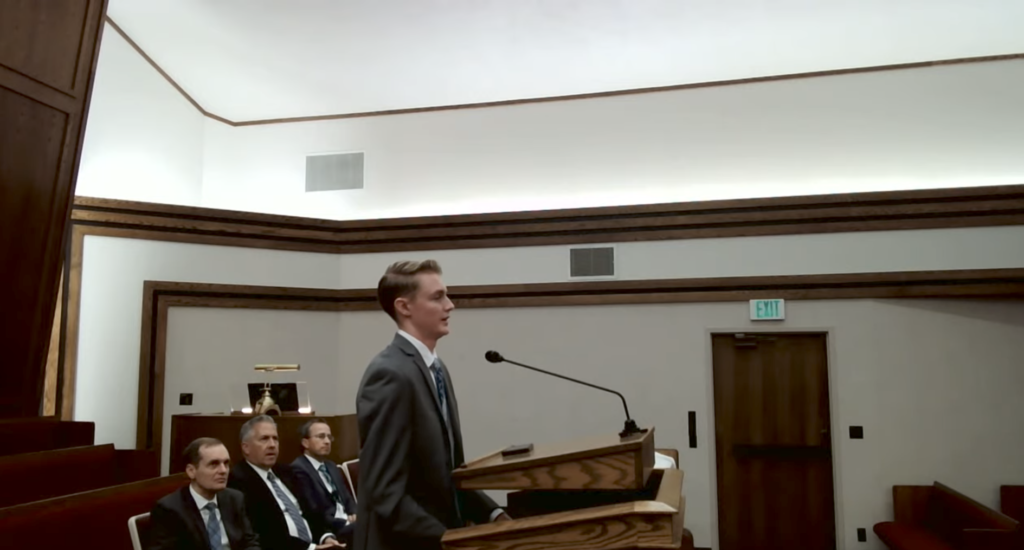
We listened to Tim speak in church, and here are a few lessons that I wrote down from his talk.
Righteous examples are important.
Prophets are important guides to help us find joy.
And the Lord God hath sent his holy prophets among all the children of men, to declare these things to every kindred, nation, and tongue, that thereby whosoever should believe that Christ should come, the same might receive remission of their sins, and rejoice with exceedingly great joy,
Mosiah 3:13
Joy comes from inviting people to Christ.
Focus on the rulegiver, Jesus Christ.
Remembering personal and family spiritual experiences can help us during trials.
Spiritual preparation helps during physical trials. He saw people who lost everything in a typhoon, yet they trusted in God and remained strong.
The temple is a beacon of hope.
The Church is more than a building or a unit, it is the people. One one island where he served, there were 3,000 people, and only 5 members, and the Lord was with this tiny gathering of Saints, working miracles in their lives.
The Lord blesses us as we turn our lives to him.
As we give more of ourselves to the Lord, we will have joy.
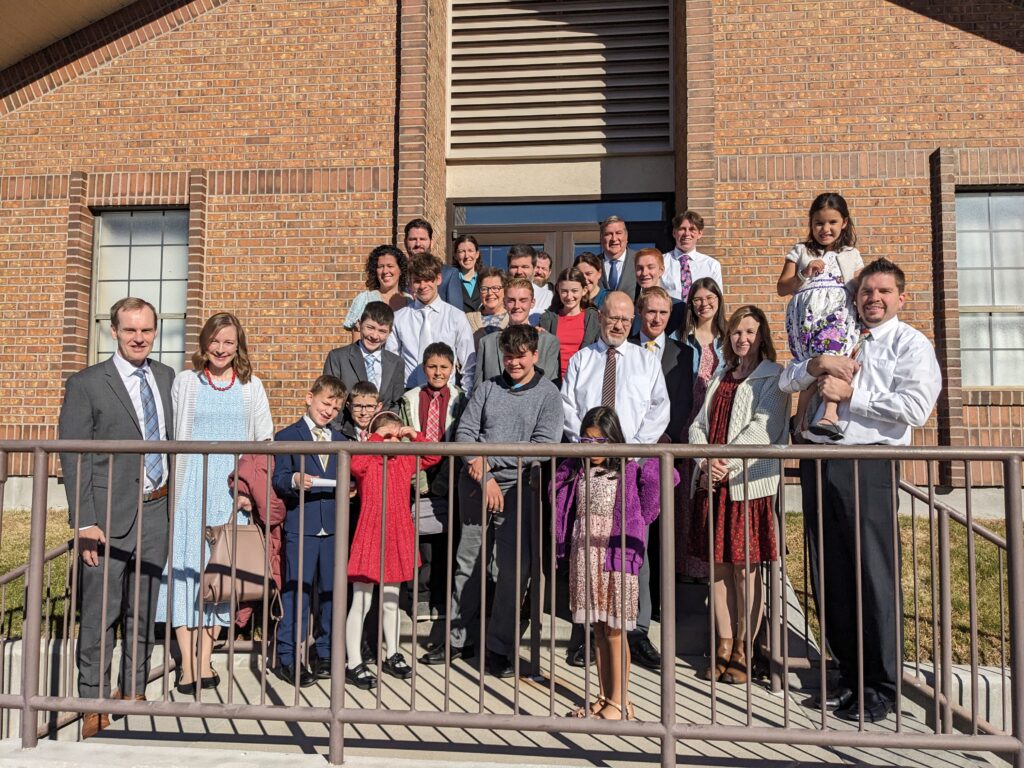
Trembath
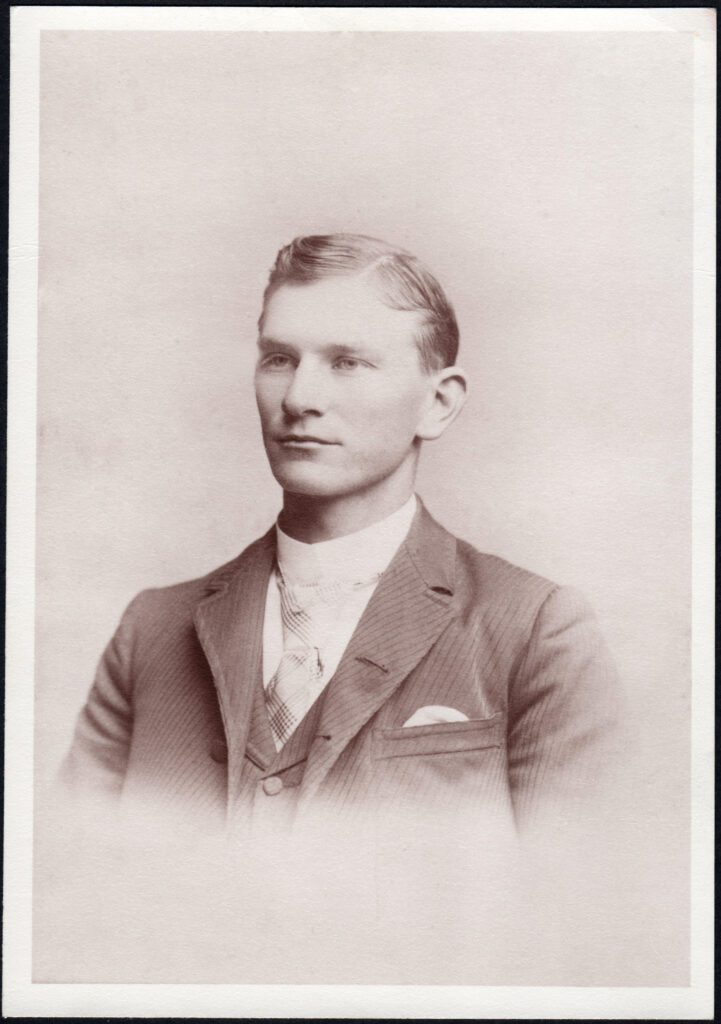
Thursday is when I try to spend an hour doing family history. This week, I read a personal history about the Trembaths, written by this grandfather, pictured above. The Trembaths are my dad’s ancestors, and they came from Cornwall, England. They were miners and farmers.
The first Trembath to arrive in America came in rebellion against his controlling father. One day, while farming the poor land, he decided he would not stay another day. He abruptly left home, found passage to America, and he continued mining here. Funny detail: the bossy dad and the rest of the family ended up following him to America. 
They mined in the Great Lakes area, then they made their way to California, where they mined for gold in the early 1850s. They found a good gold mine, and it is too bad that they were swindled out of that. So much for riches.
This week’s story reminded me that our Trembath ancestor had hopes for riches through mining, but his family found them in different ways, including growing almonds. What he didn’t know is that America’s greatest riches weren’t in mines or almond groves, but in the Restored Church of Jesus Christ, and the sealing keys. These blessings were possible because of the inspired religious liberty of the land, guaranteed by the Bill of Rights.
The gold that would sustain his posterity wasn’t in the seams of rocks, but in buried gold plates. It wasn’t a goldsmith who would work the gold, but a “Smith,” just the same, who translated the words found in the Book of Mormon. Their great-great-grandchildren would be the first to benefit spiritually from the Restored Church of Jesus Christ, founded in this land.
Our ancestors sought a better life in America, but Heavenly Father had bigger plans than riches or even religious liberty. He had plans to seal this family together through all generations, for eternity, through the atonement of Christ and temple covenants. He wants to give them all He has. It is a blessing to do temple work for these ancestors!
A new piece of art in our home
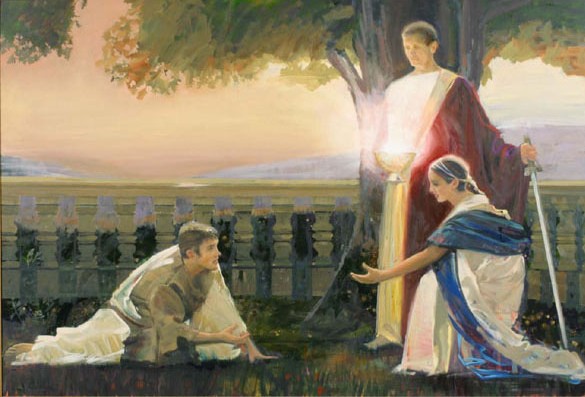
What stands out to you in this painting?
For me, it is the woman’s sweet face and attitude.
Here is the artist’s statement,
This painting is a personification of justice being satisfied by the gift of Christ, symbolized by light, and of mercy claiming the penitent man. This stands for the grace extended to all such souls who put their faith in Christ. “For behold, justice exerciseth all his demands, and also mercy claimeth all which is her own; and thus, none but the truly penitent are saved. What, do ye suppose that mercy can rob justice? I say unto you, Nay; not one whit. If so, God would cease to be God” (Alma 42:24; 25). These figures are complex, multifaceted symbolical elements in the composition. Further elements include a large spacious field representing the world, the sunset representing the end of the earthly life that each person eventually faces, and the balustrade separating mortal life from the next stage of existence.
from the Church of Jesus Christ website
The original painting is on display in the Conference Center in Salt Lake City, and I ordered a canvas print of it from the Church History Museum gift shop.
I love what it teaches without words about Jesus Christ, justice, and mercy.
A Hug
A few years ago, we were taught by a visiting leader in a stake conference that every major writer in the Book of Mormon used the imagery of a hug to teach the Atonement of Christ, with words such as clasped or encircled. He challenged us to search for these passages. As I have studied, I have found other words, including clothed to convey the effects of the Savior’s Atonement. Here are some examples:
- Nephi, in a time of grief, pleads with the Lord to “encircle [him] in the robe of righteousness.” (2 Nephi 4:33)
- Lehi tells his family just before his death that he is “encircled about eternally in the arms of [God’s] love.” (2 Nephi 1:15)
- Jacob teaches that the “righteous…are clothed with purity, even with the robe of righteousness.” (2 Nephi 9:14)
- Alma quotes Ammon, about those who repent, “They are encircled about with the matchless bounty of his love.” Ammon also says that the repentant are “snatched from their awful, sinful, and polluted state.” (Alma 26:15, 17)
- Alma, quoting Amulek, “[God’s mercy] Encircles them in the arms of safety.” (Alma 34:16)
- Mormon writes that if the people had repented, they would have been “clasped in the arms of Jesus.” (Mormon 5:11)
What stands in the way of receiving this kind of love and mercy? I think it’s our own cherished ideas, flawed perceptions, our pride, and our shame. Thus the need for humility and faith.
I don’t think it trivializes the Atonement of Christ to liken it to an embrace, being snatched from ruin, clothed with righteousness, or being held during a difficult time. The more I think about it, the more I want to share it.
Constant He is, and kind, Love without end.
Where Can I Turn for Peace, LDS Hymn #129
New name, expanded purpose
In Genesis, we read about God changing Abram and Sarai’s names when they make a covenant with Him. The name changes seem slight, but they indicate a huge leap in purpose and influence. With a shift in a couple of letters, God shows that He has very big plans for them.
Abram became Abraham, and with those two new letters, the meaning of his name moved from “exalted father” to “father of multitudes.”
Sarai became Sarah, and with that change, “my princess/ woman of strength” grew to “princess/ woman of strength to many.” (Concepts for these names are from the Israel Bible Center website.)
This ancient story becomes our story as we make covenants and become “numbered among the people of the first covenant,” (Mormon 7:10) which began with Adam and Eve. God intends the same thing for us as He did for His ancient covenant people,
I will bless thee…
And in thy seed shall all the nations of the earth be blessed; because thou hast obeyed my voice.
Genesis 22:17-18
Just as He gave new names to Abraham and Sarah, I think that the Lord continues his mighty work through small and symbolic changes. As I look back on my life, my covenants with Him have set me on a journey that requires me to move beyond self into a larger area of influence, one mothering moment, one calling, one chance at empathy, one apology, and one change in personal philosophy at a time.
At baptism, and each week during the sacrament, we show our willingness to take upon ourselves Jesus Christ’s name. Truly, His Name gives infinite potential and purpose to our lives.
Harden Not Your Hearts
“Harden not your hearts”* is a phrase I read today in the book of Jacob, and I began to think about the control we need to exercise over our thinking.
Recently, I started to feel a little bothered by someone. “This person just wants me to feel small,” I thought. But then these two simple words came to my mind,
“Or not.”
Or not? The Spirit was teaching me to question my thinking. I was making assumptions. I was taking the easy bait of victimhood. I was hardening my heart. I was not giving the person the benefit of the doubt. I was wrong!
It is a common tendency to trust thoughts and feelings as though they are pure truth. Sometimes thoughts can be wrong because they might be influenced by emotion, popular philosophies, low blood sugar, fatigue, unhealthy family patterns… So much static.
My wisdom for the day is that we can be fooled by our thoughts. Measure your ideas with the standard of Christ’s doctrine. For me, the words “or not” were enough to help me see that there was a better way to look at things.
Our thoughts matter because they lead to action. Our hearts matter because they represent our loyalties.
“Harden not your hearts” is great counsel.
*See Jacob 6:5 in the Book of Mormon. See also Obadiah 1:3, “The pride of thine heart hath deceived thee.”
